🇦🇺 Australia
🇨🇦 Canada
🇨🇿 Czechia
🇩🇰 Denmark🇪🇪 Estonia
🇮🇪 Ireland
🇮🇱 Israel
🇮🇹 Italy
🇯🇵 Japan
🇲🇽 Mexico
🇵🇱 Poland
🇰🇷 South Korea
🇨🇭 Switzerland
🇬🇧 United Kingdom
🇺🇸 United States of Americaand more
🇦🇺 Australia
🇨🇦 Canada
🇨🇿 Czechia
🇩🇰 Denmark🇪🇪 Estonia
🇮🇪 Ireland
🇮🇱 Israel
🇮🇹 Italy
🇯🇵 Japan
🇲🇽 Mexico
🇵🇱 Poland
🇰🇷 South Korea
🇨🇭 Switzerland
🇬🇧 United Kingdom
🇺🇸 United States of Americaand more
Biolectra Magnesium Fortissimum effervescent tablets tube 10 pcs
$28.16
Biolectra Magnesium is a mineral supplement from the group of magnesium preparations that helps maintain normal levels of this important element in the body. The drug is indicated for the correction of magnesium deficiency, which can manifest itself in the form of muscle spasms, cramps, neuromuscular disorders and other symptoms associated with metabolic disorders. Magnesium plays a key role in the processes of energy metabolism, muscle contraction, functioning of the cardiovascular system and transmission of nerve impulses. Additional magnesium intake increases stress resistance and improves the overall tone of the body. Thanks to the combination of magnesium oxide and magnesium carbonate, the supplement provides a high level of bioavailability of this element, especially in conditions of increased stress or insufficient intake with food.
-
— or —
Pharmacological properties
Due to its central role in metabolism, magnesium is an important element for the body. Magnesium is necessary for many energy processes in the body, it participates in the metabolism of proteins, fats, carbohydrates, nucleic acids and in the process of neuromuscular excitation.
Numerous functions of energy generation or expenditure (such as chemical reactions, transport of macro- and microelements, muscle contraction) depend on magnesium and, if the body’s magnesium supply is disrupted, may be insufficiently performed or completely disrupted.
Magnesium activates glucose-digesting enzymes, cellular oxidation enzymes, protein synthesis enzymes, it also plays an important role in the processes of myocardial contraction; it is a stabilizer of fibrinogen and platelets. It is known that magnesium deficiency is one of the pathogenetic mechanisms in the development of hypertension, vasospasm, neoplastic diseases and urolithiasis. In stressful situations, an increased amount of free ionized magnesium is excreted, and therefore an additional amount of magnesium helps to increase resistance to stress. Magnesium plays a leading role in the processes of neuromuscular excitation, acting as an antagonist of calcium ions.
The total amount of magnesium in the body of an adult is about 20-30 g. Of this amount, approximately 50% is found in the bones, 45% in the cells, and only 5% of the total amount can be found in the blood plasma.
Intracellular magnesium concentration varies from 10 to 60 mmol/L, the normal value of magnesium concentration in blood plasma is from 0.7 to 1.1 mmol/L. In blood plasma, approximately ⅔ of magnesium ions are in dissolved form and about 1/3 is bound to proteins.
When taken internally, magnesium is absorbed depending on the initial magnesium content in the body. With a magnesium deficiency in the body, it is absorbed more, and with magnesium saturation – less. Resorption is accelerated or slowed down according to the needs of the body, which is typical for physiologically active substances. With a balanced magnesium balance and preserved kidney function, despite high doses of magnesium, there is no increased accumulation of magnesium exceeding the normal limit.
After absorption in the intestine, magnesium is excreted mainly by the kidneys. Unabsorbed magnesium is excreted in the feces.
Indication
The drug Biolectra Magnesium Fortissimum is indicated for the treatment and prevention of magnesium deficiency in the body in cases where it is the cause of muscle activity disorders (neuromuscular disorders, cramps), with chronic physical and mental fatigue, irritability, myalgia, with intense physical and mental exertion, and during pregnancy.
For hypomagnesemia resulting from prolonged smoking and alcohol abuse, prolonged use of laxatives, contraceptives, certain diuretics, or osmotic diuresis in diabetic patients with persistent hyperglycemia.
Application
Adults and children over 15 years of age are prescribed 1 effervescent tablet once a day.
The tablet must be dissolved in a glass of water and the resulting solution must be drunk.
The duration of treatment depends on the underlying causes of magnesium deficiency in the body and is determined by the doctor individually.
Contraindication
Hypersensitivity to any component of the drug.
Impaired renal function; conduction disorders in the heart (high-degree AV block), which can lead to bradycardia. Hypermagnesemia, hyperkalemia, myasthenia gravis, exsicosis, chronic urinary tract infections, calcium-magnesium-phosphate-ammonium diathesis.
Side effects
At higher doses, soft stools are possible, which are not dangerous and disappear after reducing the dose. With prolonged use of the drug in high doses, a feeling of fatigue may develop. In this case, the doctor should decide on the advisability of further intake of magnesium.
Special instructions
1 effervescent tablet contains 4.65 mmol (107 mg) sodium. This should be taken into consideration by patients on a low-sodium (low-salt) diet.
1 effervescent tablet will provide 2.51 mmol (98 mg) of potassium. This should be taken into account in patients with limited kidney function, as well as in patients on a low-potassium diet.
Use during pregnancy and breastfeeding. There is no risk when using the drug during pregnancy. Taking the drug during breastfeeding is recommended after consultation with a doctor and according to his prescription.
The ability to influence the reaction rate when driving vehicles or working with other mechanisms. Does not affect.
Children: The drug is not recommended for use in children under 15 years of age.
Interactions
Magnesium, which is part of the drug, may disrupt the absorption of iron, sodium fluoride, tetracycline. In such cases, between taking the drug Biolectra Magnesium Fortissimum and iron, sodium fluoride, tetracycline preparations, an interval of 3-4 hours should be observed. With simultaneous use of drugs containing aluminum (for example, antacids), the absorption of aluminum may be increased.
Magnesium preparations enhance the effect of antiarrhythmic and antihypertensive drugs, as well as drugs that depress the CNS; simultaneous administration with amphetamine, ephedrine, quinidine, quinine is not recommended.
Overdose
When taking magnesium salts orally, hypermagnesemia occurs only in renal failure. Magnesium salts are contraindicated in such patients.
Symptoms of intoxication. High concentrations of magnesium cause skeletal muscle relaxation (plasma magnesium concentration 5.5 mmol/l). Higher concentrations of magnesium ions (10-20 mmol/l) prolong the conduction period in the heart, and even higher concentrations lead to cardiac arrest in diastole.
Treatment of intoxication. Intravenous administration of calcium instantly leads to suppression of the described symptoms, since there is antagonism between these ions.
Storage conditions
In the original packaging at a temperature not exceeding 25 °C.
You may also like


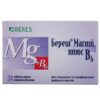
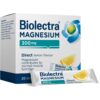
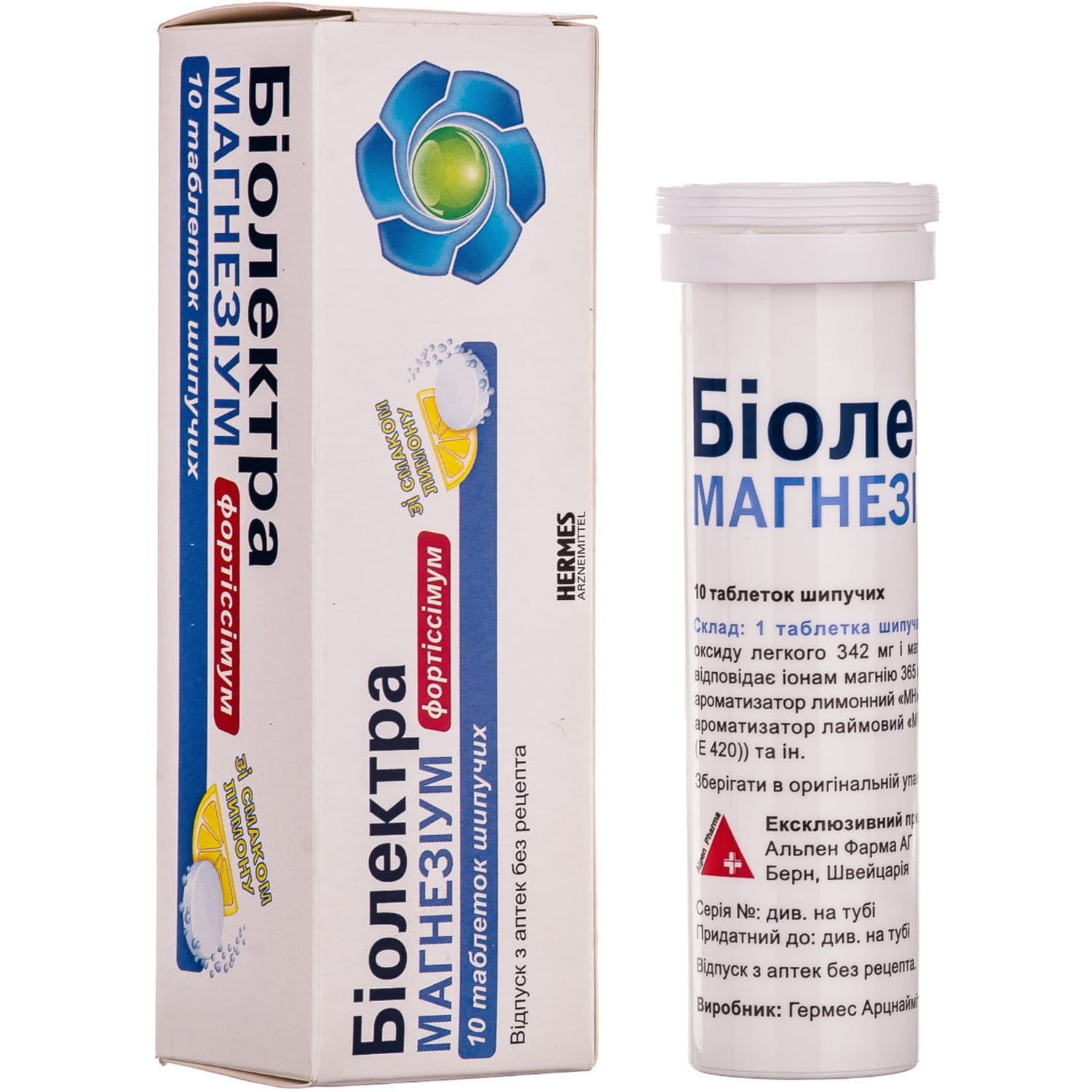
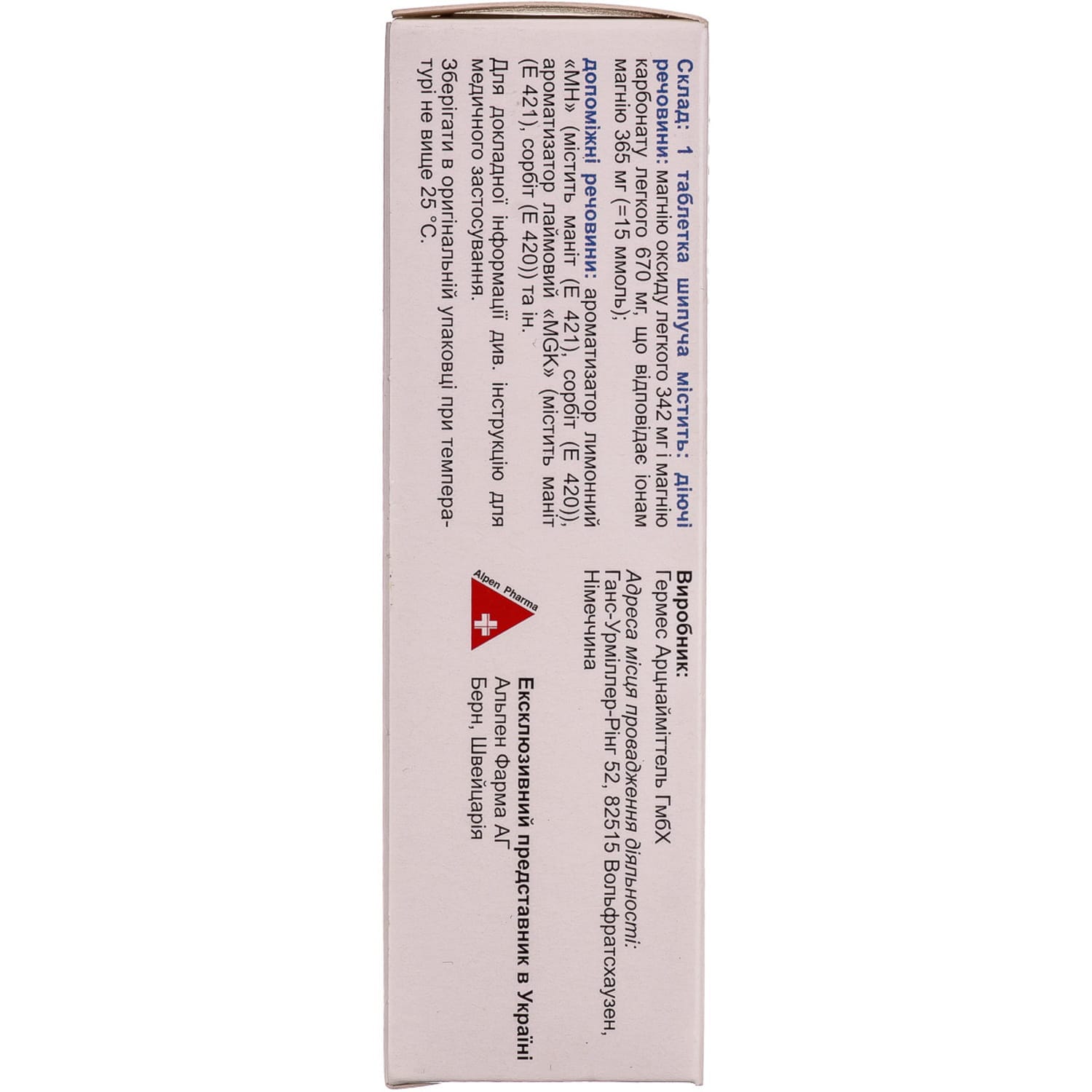
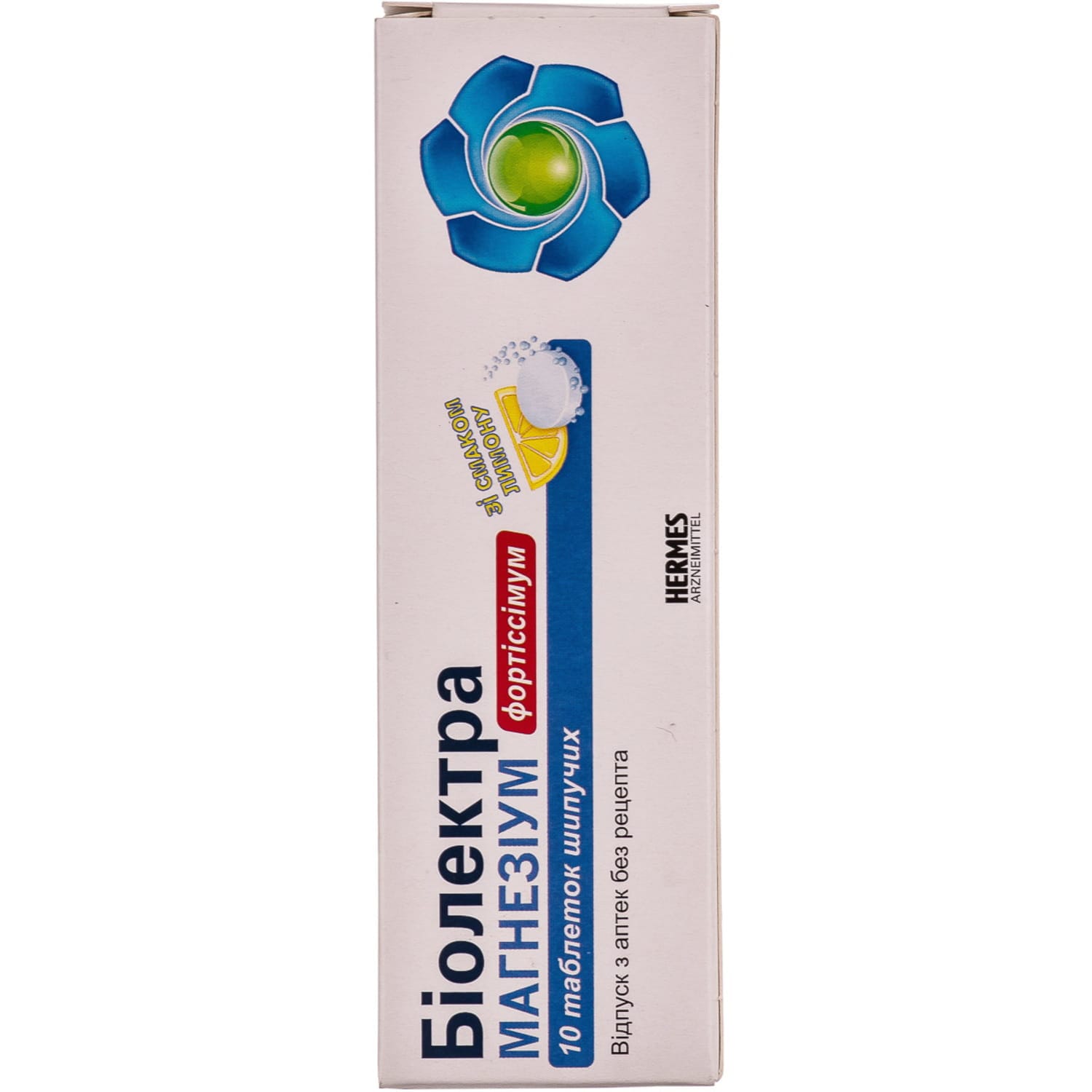
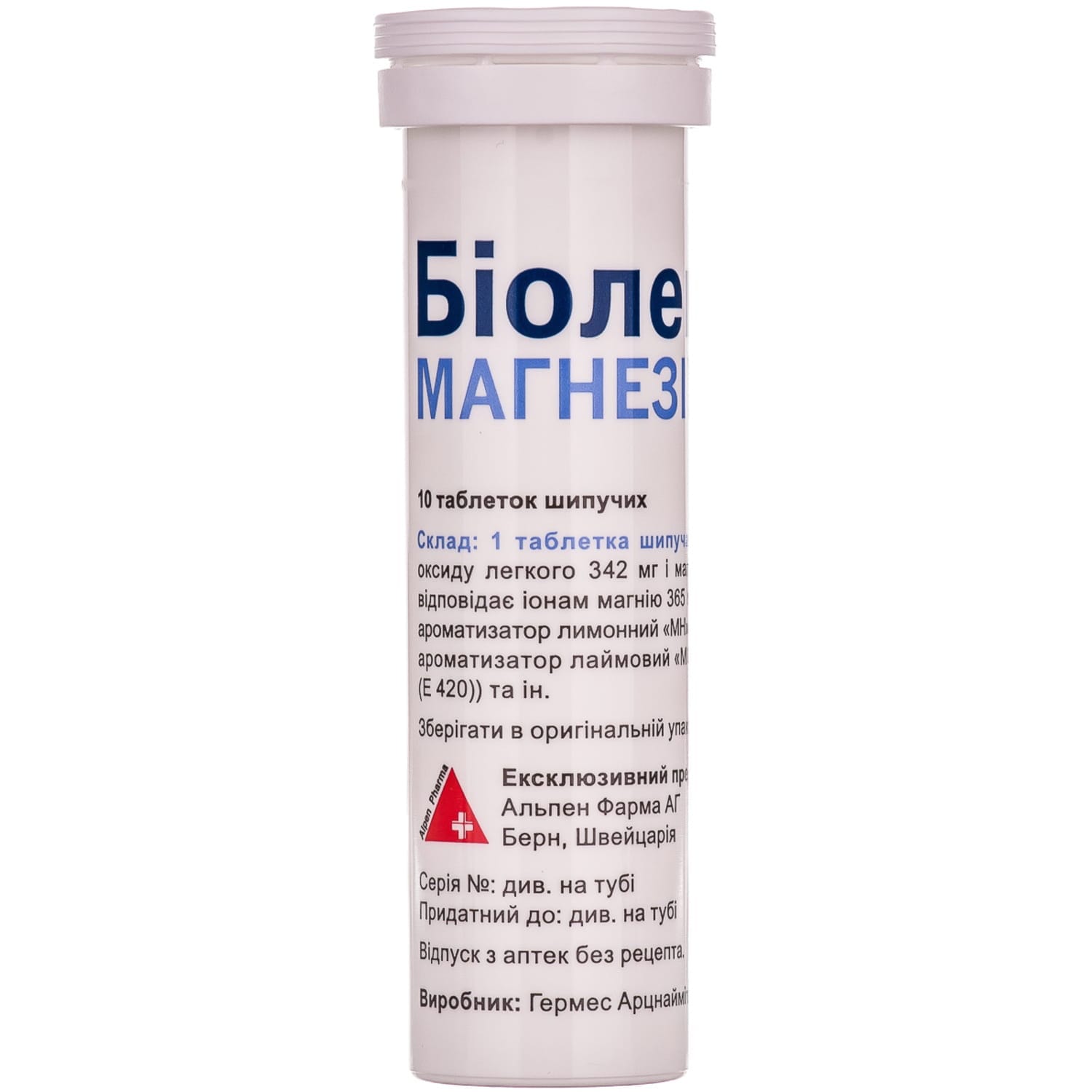
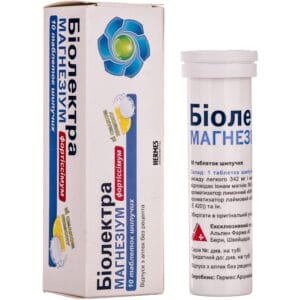
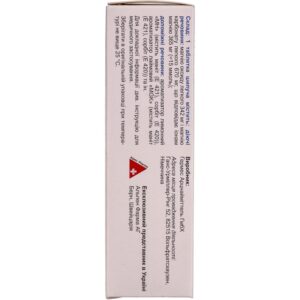
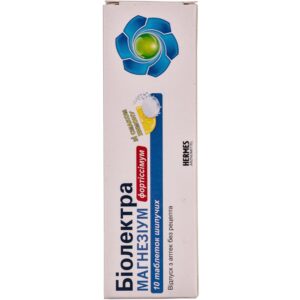
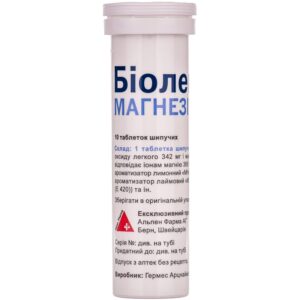
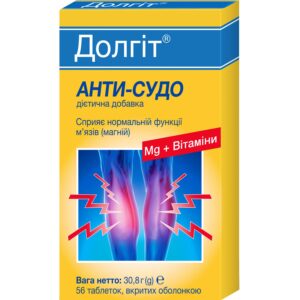


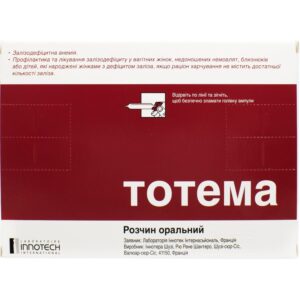
Reviews
There are no reviews yet.